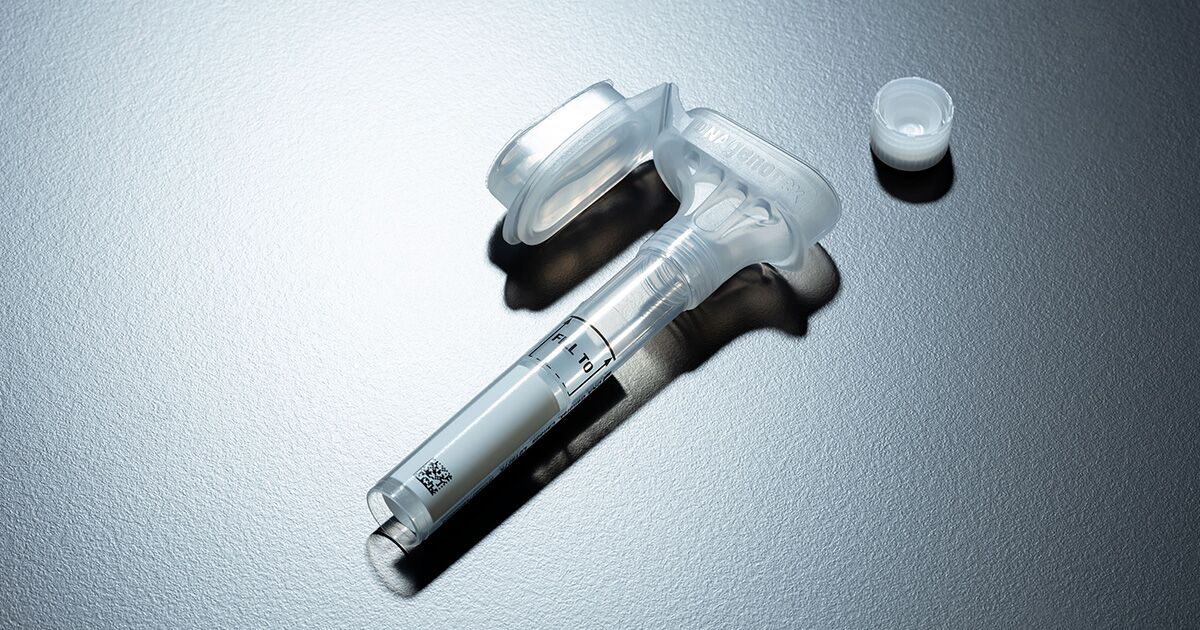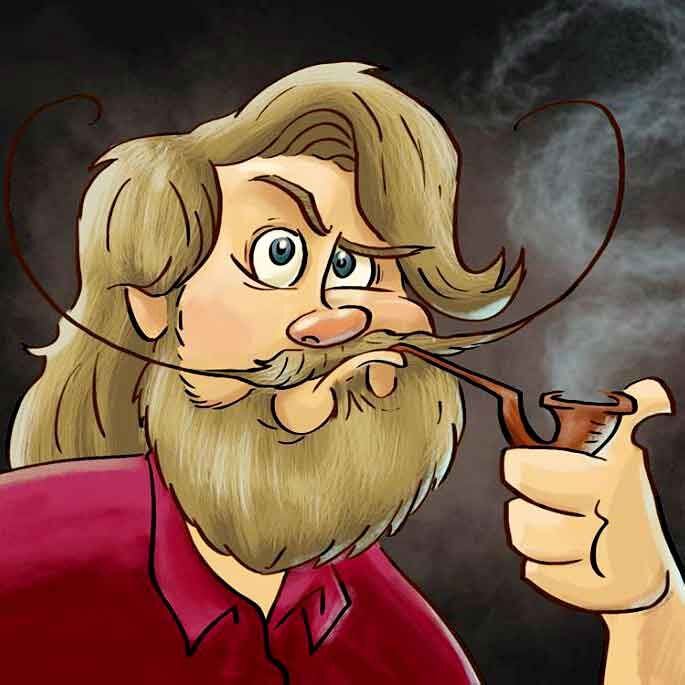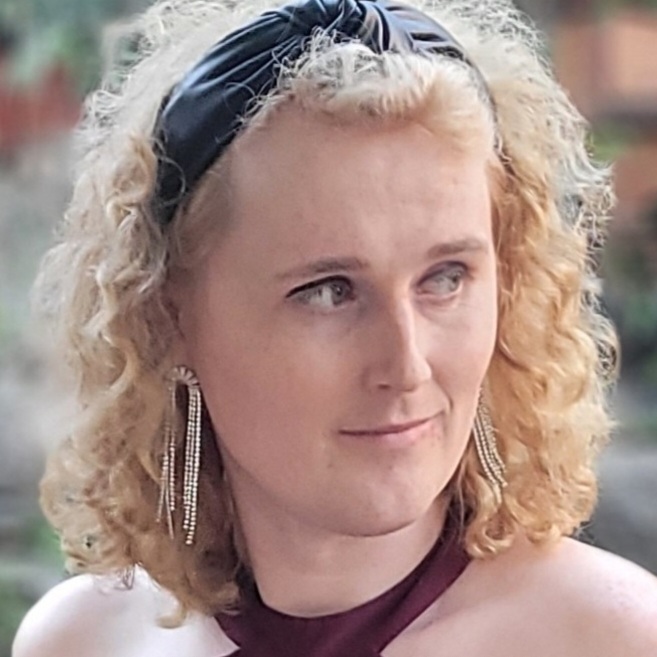It was clear from the beginning that 23 and me wasnt selling these far below cost out of the goodness of their heart. They were going to use it to profit one way or the other. The question was how not if.
Removed by mod
This seems like corporate whitewashing of all the insidious things they will actually sell user data for. Like “yeah we sell user data but only so we can make a cure for cancer” meanwhile they are selling it to organizations that are building biometric monitoring databases straight out of Minority Report.
deleted by creator
This entire conspiracy theory falls apart once you realize there is more than one group trying to cure cancer, and have cured multiple cancers, as curing cancer is vastly more profitable than treating it.
Once your cancer is cured, you no longer need treatment, and you won’t seek treatment if there’s a cure.
Cancer cures (and eventually, vaccinations) are an arms race, and only efficacy matters
Companies burn food to ensure scarcity and protect their bottom line.
We’re stupid
Except companies aren’t the ones curing cancer, academics are… Companies will gladly use the free R&D, productize, and make a quick profit.
With NIH and FDA oversight and HIPPA compliance right?
Right?
23 and me isn’t a healthcare provider and not a “covered entity” under HIPAA . So the protections that would apply if you got genetic testing through your doctor from an actual medical genetic testing company don’t actually apply to 23 and me. Though the company maintains it follows federal regulations voluntarily “as a courtesy.”
So don’t worry, your genetic data is protected by the good will of venture capital tech bros.
Any unregulated entity that swears they’re doing the right thing is straight up lying
Yeah 23 and me wanted to have their cake and eat it too. They wanted to run tests for genetic diseases but not have to comply with any of the regulations that would entail, including critical things like HIPAA, offering proper informed consent before testing (which is not just a form but is an actual conversation with a medical professional), and offering up included follow-up genetic counseling services for individuals and their families. This is critical for genetic testing especially, which usually have results that are far more complicated than just a simple negative or positive. Basically just the airbnb or uber models of skirting regulations for profit but applied to genetic testing. FDA stopped them though, so instead of complying with regulations there for good reason they cut out the actual medical tests and now just compile things like, your risk of heart disease may be ~4% instead of ~3% because of this SNP marker we found. All so that the FDA and others can’t regulate them like true medical testing companies.

The CEO just really likes the taste (and especially the structure) of spit.
I can’t unread this. Good job sir.
HATE
Put all the spit-focusd onlyfans out of buisness.
Oh come one, we all knew this right? I spit in the tube knowing they’d use it for drugs, sale or some other research shit. They also feel like they made this pretty clear throughoit the process that they’d use your spittle for science.
That’s probably the best case scenario honestly. They use our saliva and cure cancer. That’s a great thing for humanity.
The other applications range from questionable to dystopian… Making a database of everyone’s DNA for law enforcement, data leaks and dark-web selling your DNA sequences, insurance buying the data to limit coverage after a claim, forensic genealogy as a way to catch criminals, using forensic genealogy to predict future offenders, targeted bio weapons, future tech like making clones of people, manufacturing fake evidence to plant, using genetic info to target certain types of people (race, gender, what if sexuality is genetic)
One things missing with most of the those: profits. I’d be more worried about bad actors stealing the DNA data and using it for all those. The businesses will keep within regulations to keep the profits rolling in without getting shutdown.
The business will gladly sell to the alphabet boys. And hackers will definitely get the data from poor security.
I’m pretty sure they were upfront about their intended use to help research personalized medication. This isn’t some conspiracy.
deleted by creator
Yeah, from two years ago and it wasn’t even surprising then.
deleted by creator
Removed by mod
They do, there is a wide range of genetic tests done on newborns. Mostly looking for rare genetic diseases that need treatment from birth. https://www.genome.gov/genetics-glossary/Newborn-Genetic-Screening
All children born in Sweden after 1975 have blood samples stored in a biobank. A bit scary tbh.
They got the idea from Svalbard. In case of global catastrophe.
Removed by mod
Wow! It’s something nobody could have ever guessed!
Yeah this doesn’t bother me. And I tend to be a somewhat paranoid person. But I got convinced to do one of these by my partner. And so far, no regrets. They had some family surprises, but they don’t regret it either. If they make some cool new meds with my DNA (honestly even if I have only the knowledge that they made meds from 23andme) I’m just going to go around saying hey that might have my DNA in it.
Just wait until you guys find out what they’re really doing is cloning us all to replace us with mindless worker drones. I accidentally met mine. They were nice. Bought me a coffee. Then I got real sleepy and woke up half buried in the woods. Real strange day.
Yeah I saw when that happened. I don’t do the open sharing. But it is easy to identify me as a Jew plenty of other ways. Including online with things attached to my real name. So it is what it is.
If problems arise, you can always ditch your name but not your DNA. Obviously, those are worst case scenarios but I’m personally worried about DNA being used by insurance companies, being coupled to credit scores, used for higher education admittance, etc
Haha, decent show actually.
kinda inevitable. with as fast as dna can be sequenced now… we are publicly broadcasting this information. how can we realistically protect something we broadcast. its kinda like having your photo taken in public. at some point, its gunna happen.
do you have an expectation of privacy on data you publicly broadcast 24/7 everywhere all the time? i dont think so. i think its silly to try.
its only a matter a time before most of the world is captured into a continually aggregated genetic database of unique individuals which will inevitably all link back together.
are there going to be bad actors? yep. lets prosecute those mofos, but this kind of aggregations is far from evil or wrong or… stoppable.
Holy shit, GATTACA was supposed to be a cautionary tale, not an instruction manual!
i call this the ‘tipper gore affect’. aka, ‘you see what you want to see’
im kinda hopin we dont go down the full-on genetic editing path as they did in the movie… maybe just hardcore embryo defect filtering for know diseases/errors
It’s not even the genetic editing that was the biggest issue, IMO. It was the pervasive surveillance and discrimination that was even worse.
yep, good point. it would be nice to solve for those issues before theyre applicable to dna. humans still suck in a lot of ways
Removed by mod
how can we realistically protect something we broadcast.
With appropriate privacy laws and security measures. A smartphone is publicly broadcasting information, in that any other person could receive the radio transmissions emitted from them. But such eavesdropping would be illegal in most cases, and is mostly encrypted to hinder bad actors who don’t obey such laws.
It’s important we act now to ensure there are suitable privacy provisions in place now for all biometrics, before such things as mass DNA collection and sequencing are practical. Once such technology is available, perhaps we will also have to adapt our behaviour in public to prevent leakage of unprotected biometric assets.
Time to start advocating for biometric privacy, and investing in bodysuits and hair nets.
you are completely ignoring the fact that a global genetic database is not only in progress, it is inevitable.
you cannot protect something you not only broadcast to the entire world with every breathe, but are also incapable of stopping or encrypting that data, or breaking its chain back to the other humans to which you got yours from.
we absolutely should protect humans from corporations looking to abuse this data, but you need to understand. its public data, and there is zero you can do about its existence or aggregation.
This isn’t even new. Why are we posting things from over two years ago and treating it like some sort of revelation?
Everyone who thinks this is legitimately bad. I ask, what do you think of AI art data sets? Sometimes, to make something new you have to have mass amount of data to start with.
I think people who paid to have a service, checked a box for their sample to be used for research, and the research is to cure disease, have significantly lower reason to be upset than an artist who used Twitter to upload their work and had said work used as a data set to train a product that will try to make their career even MORE financially immposible.
Boohoo. You signed up for a good cause. Get over it.
Here’s the difference, an artist can make more art. You cannot change your DNA. If someone steals some of your art it’s not the end of the world. You can make more. If someone has your DNA, you can’t change it. Once its out there that’s it. More over having someone’s DNA can give you significant insight into into just the person whose DNA you have but also their parents and their children.
Once its out there that’s it.
But the subject put it out themslevss. More over, they paid for it be used. No one was tricked, captured or coerced in to giving their DNA.
As opposed to an artist who is promoting themselves and their craft, used without their knowledge to replicate their work.
By biological father was an anonymous sperm donor before the technology to sequence a person’s DNA for under 10 billion dollars was a thing. They did not give their DNA to ancestry. Their sister did, having no clue that her brother had donated. Yet ancestry has matched her to several nieces and nephews, outing her brother’s history to his sister and the children who were never supposed to have access to that info. It’s not just your own information.
Similarly, one of my half siblings suddenly found out that his dad wasn’t his birth dad.
Anyways, he happens to be cool with the fact that he suddenly had contact with offspring who weren’t supposed to know who he was.
But our DNA is interconnected. It doesn’t just belong to one person.
Happier version of your story:
My dad an I both did 23 and Me. He made sure I knew he had done sperm donation before I met my mother just in case something came up. Well, it did! I have two half siblings from his donations! I think it’s cool, and I think he’s happy to know he helped two families have a child.
I have a lot of half-siblings. One set of two, one set of 3 (I’ve only met the oldest), one only child, there’s me and my two full siblings, and the donor’s actual child. There’s more out there. Another we matched with their child, but I don’t think we even know their name. Been pretty cool meeting all of them and the donor. Its actually been a happy experience, but one certain people had no choice in making.
It’s interconnected, sure, but I think you’d have an uphill battle that it doesn’t belong to that person.
I mostly agree, except both my parents did it so they more or less have my DNA without my consent. They sure might not have the exact combination that I received from them but it’s more than I’m comfortable with.
Though the amount of possible permutations combined with epigenetic triggers you’ve activated makes it practically impossible to guess which combination you have.
Yes but it makes it significantly easier to guess
That sounds like a lot of work. Some high dose radiation will get the job done much faster.
deleted by creator
23andme requires you to agree to what they ask, which is far more than what Johns Hopkins did for Henrietta Lacks.
deleted by creator
Informed consent laws were around well before The Immortal Life of Henrietta Lacks came out. I think there were earlier publicized examples of subject mistreatment (like Tuskegee) that already pushed the field to be better.
There’s a big difference between a person’s DNA and a person’s art. DNA is the principle part of someone’s biometric identity, which can be used to reveal an enormous amount of information about a person. Hence it is not unreasonable to expect that its usage will be handled in a careful and clearly defined manner. Most countries have very strict laws on biometric data for a reason.
The same can not be said for a piece of art. While an an artwork will often convey aspects of the artist’s personality, and can conform to an identifiable style, it would provide no where near the level of insight into a persons physical identity as a DNA sample.
It also seems a stretch to conflate sharing something privately and publishing something publicly. The former will have expectations of privacy and control, regardless of whatever is stated any legalese incomprehensible to the average person. The latter however assumes a loss of control, to share something publicly is in some ways to cede it to the public.
deleted by creator
deleted by creator
Called it.
Can you show us where?
Fuck yeah we did!
surprisedpikachuface

















